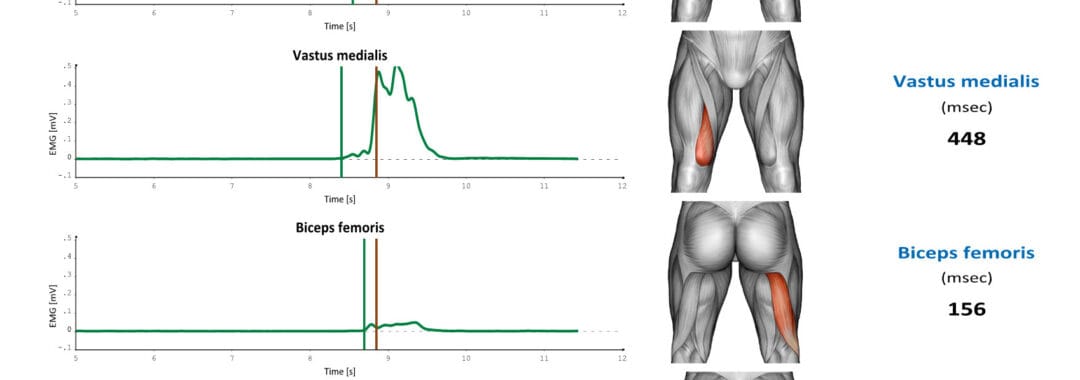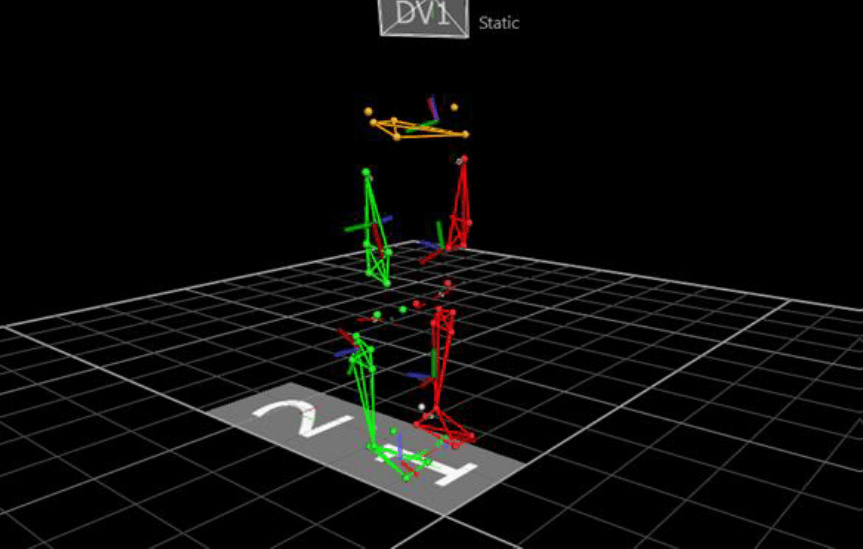Recovering from an injury can be a long and daunting process. Anterior cruciate ligament (ACL) tears are among the most dreaded knee injuries an athlete can face and your risk may be reduced by having an ACL injury risk assessment. After surgery and all the required rehabilitation, a legitimate concern of re-injury and performance loss often remains when returning to sport. For young athletes, especially, the ability to screen for an increased risk of ACL tears before they occur and to apply preventive training can potentially avoid this stressful process entirely or prevent a re-injury.
By Mike Croskery, M.Sc. HK (Biomechanics) - Clinical Exercise Physiologist
Our Advanced Drop Test Assessment to Assess Knee Stability through EMG and Inertial Analysis.
Luckily, there is an advanced test designed to provide peace of mind, decrease future injury risk, and boost confidence for athletes returning to the game they love. Our specialized drop test combines EMG (electromyography) and inertial analysis to thoroughly examine your muscles and assess their readiness and reactivity. This ensures your knee is protected from the high forces inherent in sports.
How the EMG and Inertial Sensors Work to Assess Your ACL
During the drop test, four wireless EMG sensors are precisely placed on the affected leg (two on the front thigh and two on the rear thigh of the same leg). An inertial sensor is worn around the waist to accurately identify when the foot makes ground contact.
Through advanced computer analysis, we can determine if your thigh muscles activated appropriately before your foot hit the ground. This pre-activation is vital for providing strong, dynamic stability to your knee joint.
Personalized Prevention & Performance Enhancement
A pre-activation timing in your thigh muscles that falls outside healthy reference values could indicate an increased risk of re-injury to your knee.
To address any identified issues, we develop an appropriate, personalized exercise prescription. This combines targeted strengthening and agility/reactive drills, specifically designed to:
- Optimize activation timing in the appropriate muscles.
- Lower your risk of injury or re-injury.
- Decrease your time to return to sport if recovering from a knee injury.
- Give you the confidence to know you're ready to get back into the game or move to the next level of competitiveness.
Ready to Schedule Your ACL Injury Risk Assessment?
Don't leave your knee health to chance. Take proactive steps to protect your athletic future and enhance your confidence.
If you would like more information for yourself or your athletes or to book your ACL injury risk assessment session, please contact Mike Croskery today.
You may be interested in reading more drop test-related topics such as...
Are your drop jumps telling you what you need to know? Assessing Readiness: The Hidden Dangers of Drop Jump Tests in Injury Recovery


Pingback: Strong Science-Based Knee Replacement Exercises You Need